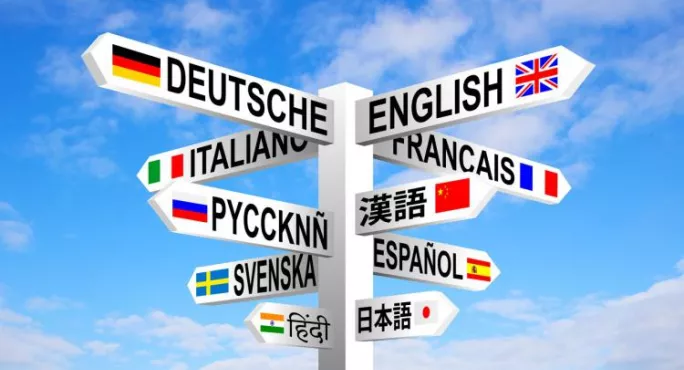A press release landed in my inbox earlier this week warning of a looming languages deficit in the UK, post-Brexit.
According to its figures, 61 per cent of Brits speak no other language than English - a proportion, it’s speculated that will rise as EU nationals and British linguists leave the country for jobs abroad, taking their skills with them. At the same time, English will decline as a global language - it’s already been replaced by Chinese, Hindi and Spanish, which all have more native speakers.
Languages float my boat. I was a first-generation child born in the UK, of immigrant parents, who started school with no English. This was in the days before teaching assistants, EAL and other interventions. I don’t actually recall how, or when, I learned English but it didn’t take long. “Just get on with it” was the approach. I think they called it immersion.
Language questions
The press release turned out to be promoting a language-learning app but setting that to one side, it raised some important questions.
Are we bad at languages in this country because of the quality of teaching and teacher shortages? Or is it because we’re ambivalent about others and their culture?
As we hurtle towards March 2019, it is one of many issues ministers need to address. As we face the reality of leaving the EU, languages are just one aspect of the deficits in our education system. And, so far, there has been little evidence of any joined-up thinking between government rhetoric and domestic practicalities.
Where, for example, are the policies to implement more vocational and skills-based learning?
Preoccupied with the external machinations of leaving the EU, the government hasn’t laid out how it plans to keep the country functioning from 2019 onwards. Who is going to do the hands-on work, like designing, making, installing and fixing things?
If the government wants EU nationals gone, wouldn’t it be better to start skilling up our own population to take over? The time for snobby sneering at vocational education has gone. This is one of the reasons we had an over-reliance on overseas labour to begin with - we’ve never trained enough of our own. Instead, ministers plough on with the academically-focussed EBacc like none of this is happening. No-one’s going to need a classicist when the boiler is on the blink.
British ambivalence
On the specific issue of languages, I’ve long suspected ambivalence tinged with British exceptionalism is part of the problem. As I filled in university applications back in the early ‘80s, my headteacher stopped me in the corridor one day to ask why I was planning to study languages when “the whole world speaks English”. I was speechless - in all three languages I spoke at that point in my life. Life experience has since taught me how wrong he was but, regardless, it seemed an extraordinary comment for a teacher to make.
The reality is, of course, that we Brits excel at languages. There can be few countries in the world so linguistically-diverse, but we just don’t value what we know. This is why GCSEs or A-levels in ethnic minority languages are periodically under threat of the axe by the exam boards - and the pupils who sit them can’t have their results included in league tables. That would be cheating, you see.
Accountability in a narrow range of subjects is more important to governments than what young people know and can do, irrespective of where they learn it.
A great asset
Thanks to decades of immigration, multilingualism is one of our nation’s great assets. It comes at virtually no cost to the state because it is mainly learned at home. And with that knowledge comes an understanding of the nuance of language and culture, which will be so important in negotiating hundreds of trade and other deals in the coming years.
Instead, at a time we need them most, languages are in decline in our schools and there is a threat hanging over the Erasmus programme. In the classroom, bilingual children are seen as a problem. At the school gate, those of us who can converse with others in their own tongue are now glared at with loathing by those who can’t. Welsh speakers, in their own country, have been told to speak English and “not that foreign muck”.
As Peter Bone, one of my social media correspondents observed on Twitter recently: “As a German speaker, I’ve been aware of the ambivalence towards languages for a long time. Recent developments, Brexit, have turned ambivalence into hostility and it shrinks our world. We seem to be heading for a rather squalid isolation.”
And, we are.
Dorothy Lepkowska is a freelance education writer and the parent of a Year 3 child.
Want to keep up with the latest education news and opinion? Follow Tes on Twitter and like Tes on Facebook




